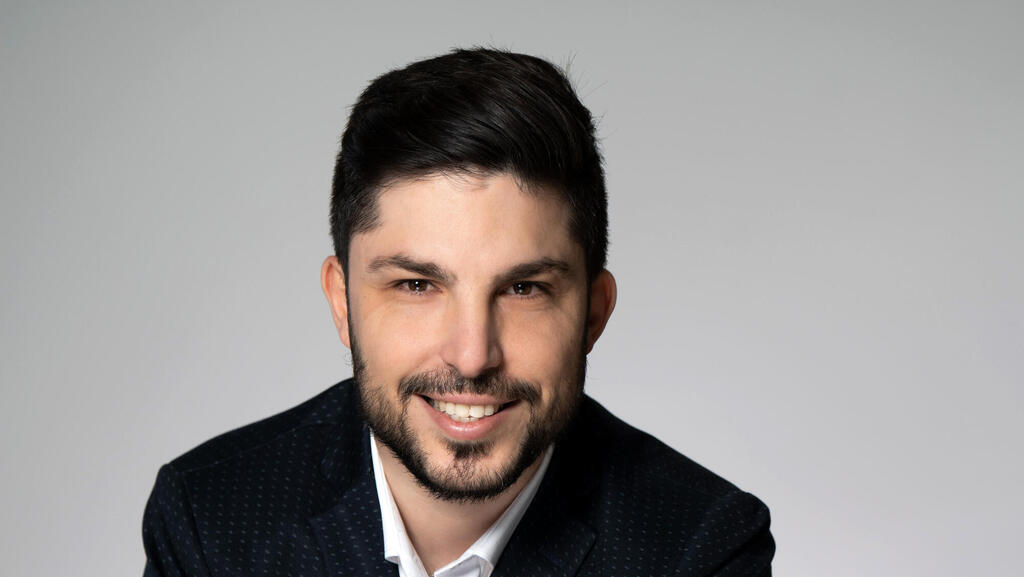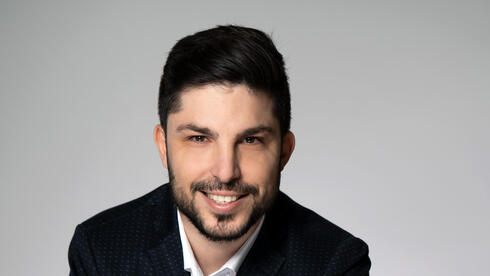
HR in the AI Era
“AI isn’t replacing people, it’s elevating their responsibilities”
Or Eligula, Chief Operating Officer at Bridgewise, and who runs its HR efforts, joined CTech as part of its new series exploring the impact of AI in the HR sector.
“AI is not just a tool, it's a new way of working,” says Or Eligula, Chief Operating Officer at Bridgewise, who also runs the company’s human resources department. “HR leaders must balance efficiency with empathy, using AI to augment the human experience rather than replace it.”
Eligula joined CTech as part of its new series, HR in the AI Era, which explores artificial intelligence's impact on the workplace. “At BridgeWise, we believe the future belongs to those who embrace both the precision of AI and the human capacity for critical thinking, empathy, and adaptability,” he added.
You can read the entire interview below.
Company name: BridgeWise
Name and title: Or Eligula, Chief Operating Officer, and who leads HR efforts
Names of founders and upper management: Founders Or Eligula, Mor Hazan, Dor Eligula, Gaby Diamant; CEO Gaby Diamant; CBO Dor Eligula; CPO Mor Hazan; CTO Elad Nachmias; COO Or Eligula; CMO Dvorit Shahaf
Year of founding: 2019
Investment stage: Series A
Total investment to date: $20M+
Field of activity: AI, Fintech, Investment Intelligence
Number of employees: 50-100
Office location: Tel Aviv, Israel (HQ), with global team presence in LATAM, APAC, and Europe
Number of open positions: 5
On a scale of 1-10, how much does the AI revolution disrupt your company operation in general, and the HR department specifically?
8.
At BridgeWise, AI is at the core of everything we do. From our technology that empowers our customers to make smarter, faster investment decisions to the way we manage our organization and our people.
AI is redefining the world of finance and investments, and BridgeWise is at the forefront of that evolution. Our AI models analyze vast amounts of financial data in real time, enabling us to generate actionable investment intelligence insights quickly and with greater accuracy. This allows us to stay on top of market trends, personalize insights for global audiences, and effectively serve clients.
Internally, we use AI tools to streamline workflows, improve efficiency, and support better decision-making. Integrating AI into our everyday work has challenged us to rethink roles, redefine team structures, and ensure that talent development evolves in parallel with technological capabilities.
What interesting AI tools do you and your staff use in employee management/recruitment?
We use AI tools in our HR workflows. For example, we regularly use tools like ChatGPT to assist with drafting job descriptions, structuring interview questions, and improving internal communications. This helps us work faster, communicate more clearly, and make better hiring decisions.
In which roles or tasks within your company has AI already begun to replace human labor (if at all)?
AI doesn’t replace human roles, it amplifies them. At BridgeWise, we see AI as a force multiplier that empowers our teams to achieve faster and better results. When it comes to our platform, for example, instead of manually analyzing thousands of stocks or ETFs, our proprietary AI models enable instant analysis of tens of thousands of assets across global markets. Our teams can focus instead on what truly requires human judgment and creativity, like strategy, product development, and client relationships.
What are the two major challenges you are coping with these days?
One key consideration that’s been top of mind as AI gains prominence is the balance between innovation and trust. While our AI outputs are already highly reliable, explainable, and compliant, we recognize that industry trust in AI is still evolving. That’s why we actively work with leading financial institutions to help reshape perceptions and set new standards for responsible innovation.
Another challenge is human adaptation. As AI capabilities accelerate, we're focused on helping teams and clients evolve their mindset and workflows to fully leverage the tools at their disposal.
Have you experienced workforce-related challenges due to the war, and are you still feeling the impact of the security situation on your human resources?
Yes, the war has affected employee wellbeing, focus, and availability, especially for those in reserve duty or impacted areas. We responded by enhancing mental health support, offering flexible work arrangements, and prioritizing empathetic leadership. While the intensity has subsided, the emotional and logistical effects still linger and require attention.
Have you made changes to your workforce following the increased use of AI tools, both in terms of headcount and internal shifts between departments?
We haven’t made changes to headcount directly because of AI, but we are definitely seeing internal shifts in how teams operate. As AI tools take over data-heavy and basic tasks, people across departments are able to focus more on strategy, creativity, and high-impact work.
Rather than eliminating roles, we’re seeing a shift in the skills these roles demand. Some roles have evolved to include AI oversight or prompt engineering. In that sense, AI isn’t replacing people, it’s elevating their responsibilities.
How does the global market uncertainty affect your workforce, in terms of employee numbers or departmental reallocations? Are you scaling your workforce up or down in different regions around the world?
We’re closely tracking developments in the global market, and while that uncertainty informs our strategic planning, it’s not causing us to scale down. In fact, we’re actively hiring top-tier talent for key roles across the company. Rather than cutting back, we reallocate talent to where it’s most needed, like growing regions or client-facing teams. It’s about staying agile and focused without overextending, so we can remain fully committed to our long-term trajectory.
Do you estimate that in 2025–2026 you will increase or decrease the number of personnel? Explain why.
We anticipate an increase in personnel in 2025–2026, as we expand our global presence, including in LATAM, the EU, and APAC. We’re also doubling down on our ambitious product roadmap, and are bringing in the talent needed to support that growth.
